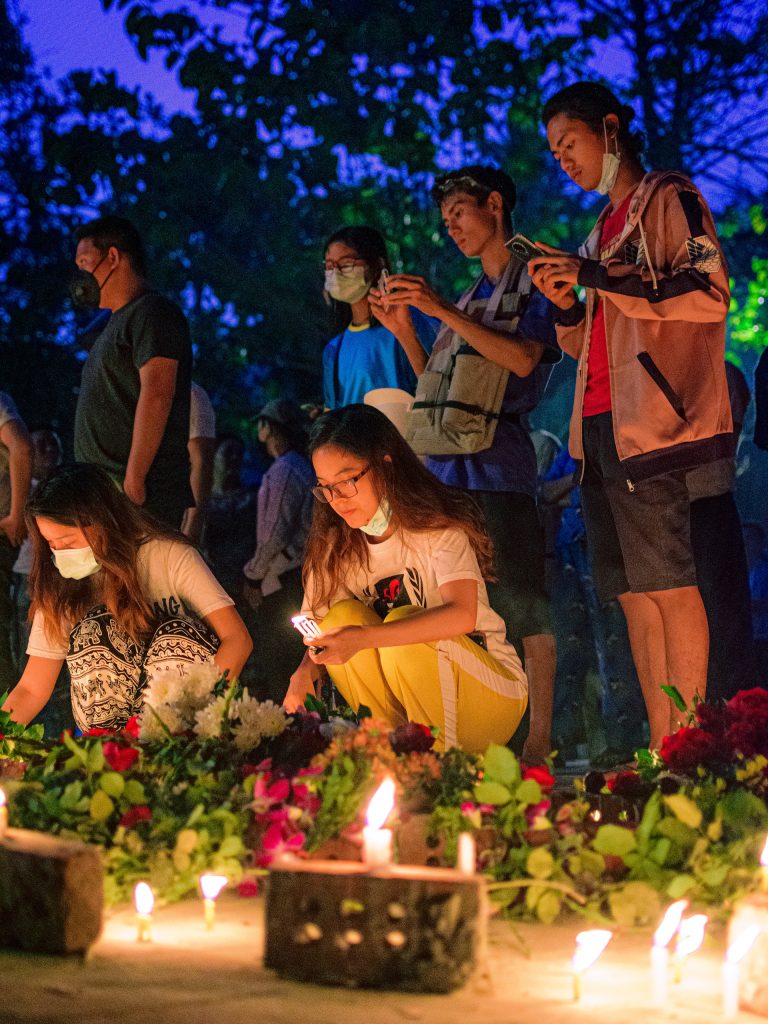Funerals are significant events that mark the passing of a loved one. Attending a funeral can have a profound psychological impact on individuals, as it confronts them with the reality of death, triggers a range of emotions, and challenges their coping mechanisms. This article explores the psychological effects of attending funerals and provides practical coping strategies to navigate this challenging experience.
- Emotional Responses to Funeral Attendance:
Attending a funeral elicits a wide range of emotions, including grief, sadness, loss, anger, and even relief. These emotions can be intense and overwhelming, as individuals come face to face with the reality of mortality and the finality of death. It is essential to recognize and validate these emotional responses as a natural part of the grieving process.
- Coping Strategies for Funeral Attendance:
- a) Seek Support: Reach out to family, friends, or support groups to share your feelings and emotions. Having a support system can provide comfort, understanding, and a sense of community during this difficult time.
- b) Self-Care: Engage in self-care practices to nurture your emotional well-being. This can include activities such as exercise, journaling, mindfulness, and engaging in hobbies that bring you joy and relaxation.
- c) Express Emotions: Allow yourself to express your emotions openly and honestly. Cry if you need to, share stories and memories, and engage in conversations about your loved one. Bottling up emotions can hinder the healing process.
- d) Attend Funerals with Purpose: Recognize the importance of attending funerals as a way to honor the deceased and provide support to their loved ones. Focus on the meaningful aspects of the service and the opportunity to celebrate the person’s life and legacy.
- e) Create Rituals: Develop personal rituals or traditions that offer comfort and help you cope with the emotions associated with funeral attendance. This can include lighting a candle, writing a letter to the deceased, or visiting a special place that holds significance.
- f) Seek Professional Help: If the emotional impact of attending funerals becomes overwhelming or affects your daily functioning, consider seeking the guidance of a therapist or counselor. They can provide valuable support and help you navigate the complex emotions associated with grief and loss.
- Understanding and Managing Grief Triggers:

Funerals can serve as triggers for unresolved grief from past losses. It is not uncommon for attending a funeral to evoke memories and emotions related to previous bereavements. Recognizing these triggers and understanding their connection to past losses can help individuals navigate their emotions more effectively.
- a) Reflect on Past Losses: Take the time to reflect on past losses and acknowledge any unresolved grief that may resurface during funeral attendance. Engage in self-reflection, seek support, and consider professional help if needed to process these emotions.
- b) Practice Self-Compassion: Be kind and patient with yourself as you navigate the emotional impact of attending funerals. Understand that grief is a unique and personal journey, and everyone copes differently. Allow yourself the space and time to heal.
- c) Utilize Coping Strategies: Implement coping strategies that have worked for you in the past when dealing with grief triggers. This may include engaging in therapeutic activities, leaning on your support network, or finding solace in spiritual or religious practices.
- Recognizing Cultural and Religious Differences:

Funeral customs and rituals vary across cultures and religions. Understanding and respecting these differences is essential when attending funerals. It allows individuals to navigate unfamiliar traditions, show respect to the grieving family, and honor the deceased in a culturally appropriate manner.
- a) Educate Yourself: Take the time to learn about the funeral customs and traditions of the specific culture or religion you will be encountering. This knowledge will help you navigate the funeral with sensitivity and respect.
- b) Show Respect: When attending a funeral with cultural or religious differences, it is crucial to demonstrate respect for the customs and rituals being observed. Observe appropriate dress codes, participate in the rituals as invited or instructed, and follow any guidelines provided by the family or religious leaders.
- c) Seek Guidance: If you are unsure about certain customs or rituals, reach out to the family or a knowledgeable member of the community for guidance. They can help explain the significance of the practices and ensure that you engage in them appropriately.
- d) Be Mindful of Language and Behavior: Pay attention to your language and behavior, as certain gestures or phrases may be considered disrespectful or offensive in different cultural or religious contexts. Be mindful of your interactions with others and show sensitivity and understanding.
- e) Offer Support and Condolences: Express your condolences in a way that aligns with the cultural or religious practices of the grieving family. This may include offering specific prayers, bringing symbolic gifts or flowers, or engaging in acts of service or charity.
- Developing Resilience and Growth:

Attending funerals can be emotionally challenging, but it can also contribute to personal growth and resilience. It offers an opportunity to reflect on the fragility of life, appreciate the importance of relationships, and gain a deeper understanding of one’s own values and priorities.
- a) Reflect on Life’s Meaning: Use the experience of attending funerals to reflect on the meaning and purpose of your own life. Consider what is truly important to you and how you want to live your life moving forward. This reflection can lead to personal growth and positive changes.
- b) Foster Connections: Strengthen your relationships with loved ones. Use the experience of attending funerals as a reminder to cherish and nurture the connections you have. Reach out to friends and family, express gratitude, and make time for meaningful interactions.
- c) Seek Meaningful Activities: Engage in activities that bring you a sense of purpose and fulfillment. This can include volunteering, pursuing hobbies or passions, or engaging in acts of kindness and service to others. Finding meaning in life can contribute to overall well-being and resilience.
- d) Embrace the Healing Process: Recognize that grief is a natural and necessary part of the healing process. Allow yourself to grieve, experience a range of emotions, and seek support when needed. Embracing the healing process can lead to personal growth and a renewed perspective on life.
Conclusion:
Attending funerals can have a profound psychological impact, evoking a wide range of emotions and challenging individuals’ coping mechanisms. By understanding and acknowledging these emotional responses, developing effective coping strategies, and showing respect for cultural and religious differences, individuals can navigate funeral attendance in a healthier and more meaningful way. It is through this process that they can find healing, personal growth, and a deeper appreciation for the value of life and relationships.








